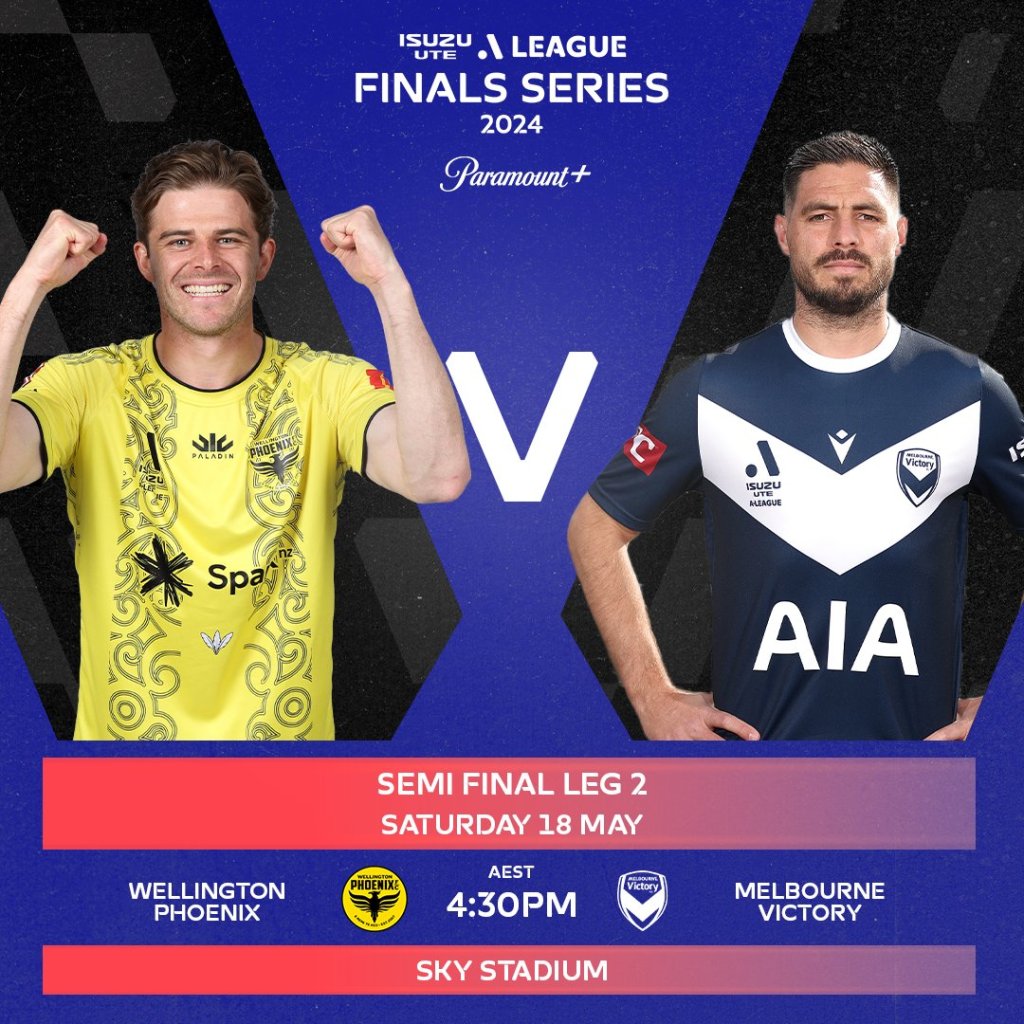Ahead of the biggest match in Wellington Phoenix history, General Manager David Dome tells aleagues.com.au about the club’s extraordinary transformation, going from calls to be booted out of the competition to one of its shining lights.
Imagine the A-Leagues without the Wellington Phoenix. In 2015, it was a reality that almost came to pass.
Nearly a decade on it’s hard to envisage; the club is on the brink of its first Grand Final, with more than 30,000 fans expected to pass through the gates for Saturday night’s blockbuster Semi-Final against Melbourne Victory.
But nine years ago, Wellington was a club on its knees.
SOLD OUT! APL confirms Isuzu UTE A-League Semi-Finals at capacity for blockbuster clashes
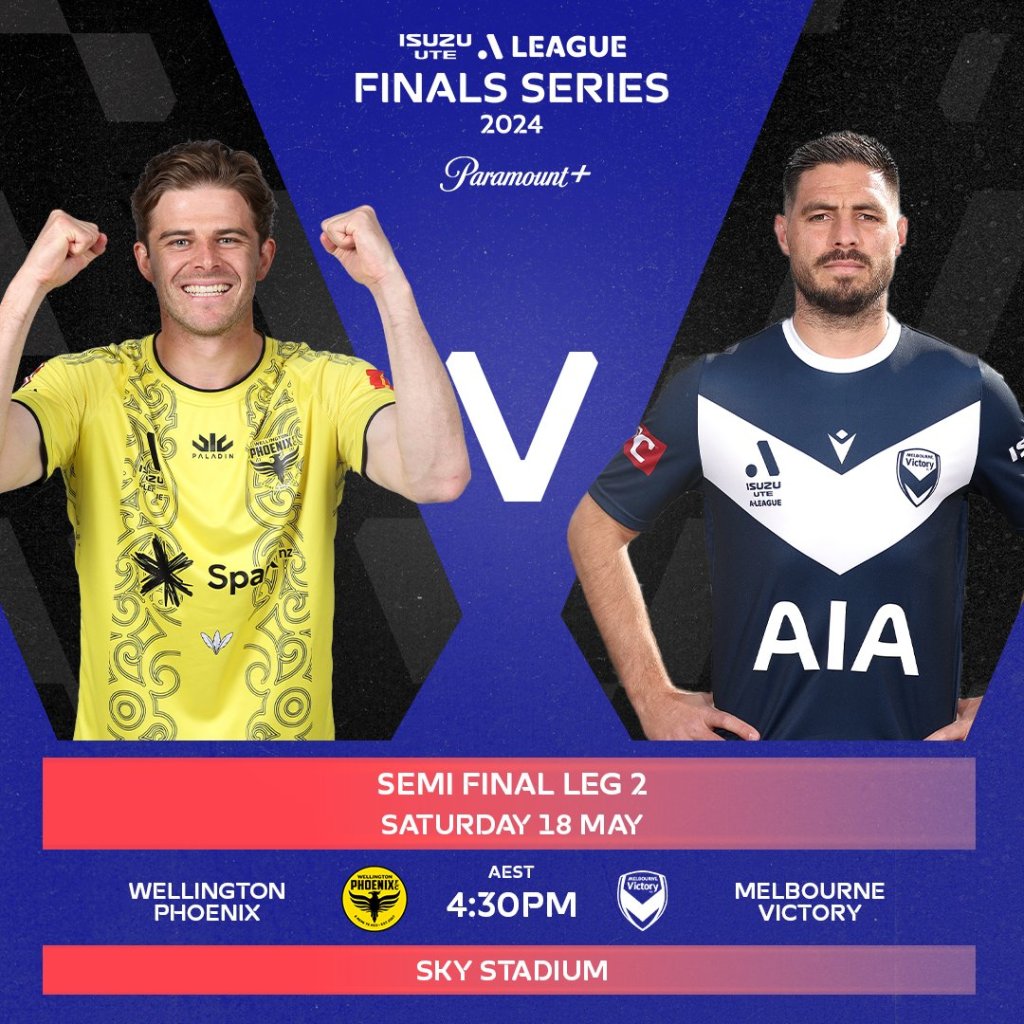
Just weeks before the start of the 2015-16 season, Football Federation Australia denied the Phoenix a 10-year license extension and David Gallop, chief executive of the league’s governing body, delivered a crushing assessment of the situation which still rings in the ears of those involved at the club today:
“We’re ambitious for the growth of the A-League. You can’t expect to squat on a licence in our competition.”
Those who wanted Wellington gone from the league in 2015 made their voices heard. But those who wanted to save the Nix spoke louder.
David Dome was the General Manager of the club at the time, and still is today.
“We haven’t forgotten that,” Dome told aleagues.com.au. “It comes up every now and then: ‘squatting’. I said to the Yellow Fever, you should make a banner: #Squatting!”
It’s a memory of a bleak moment in Phoenix history retold with the typical humour and resilient tone you come to expect after speaking to enough people at the club, battle-hardened but never defeated.
This is the story of how a club on the brink was saved – not for the first time – and the subsequent events that have led Wellington to the cusp of the promised land.
SEMI-FINAL TALKING POINTS: Phoenix ‘pattern’ we should’ve seen coming as coach’s prophecy rings true 3 months later
“I can tell you without a word of a lie, there was not one single club in the A-League who wanted the Phoenix out at that time,” Dome recalled.
“All the other clubs were supportive of the Phoenix… they could not understand why (FFA) were trying to get rid of clubs. There are always clubs that are financially challenged, and Wellington Phoenix were not one of the clubs that were draining resources from the centre.
“Why were we asked to question our survival, our existence in the league, when we were not taking money out of the centre when other clubs were? Other clubs understood that.
“Looking back on it now, there was always that sense that we were in the right, that what the club was bringing to the league was valuable, and it was something that anyone from the outside would be saying: that club is valuable to the league, and adds something to the league. It was nonsensical to be questioning our existence.”
The ‘Save the Nix’ campaign began in November, 2015. The Yellow Fever – the club’s active supporter base – led the charge and local councillors and MPs lent their voices to the cause.
“People came out of the woodwork to support the club in that time,” he said. “I remember one of the things we did was put a whole lot of scarves around the city to highlight the fact the Phoenix was being questioned.
“Shane Harmon, the CEO of Sky Stadium, was climbing in one of the fountains putting up scarves to highlight the challenge in front of the club.
“It certainly did galvanise the fanbase, not that it wasn’t before that… and it wasn’t easy.
“You can’t paper over that and say it wasn’t a challenge because, of course, it was a challenge. But what kept us going was the fans. It united the fan group. They showed their support for the club in a very overt way. But we also had a lot of fans from Australia and the other clubs coming out in support of the Wellington Phoenix.”
SOLD OUT! APL confirms Isuzu UTE A-League Semi-Finals at capacity for blockbuster clashes
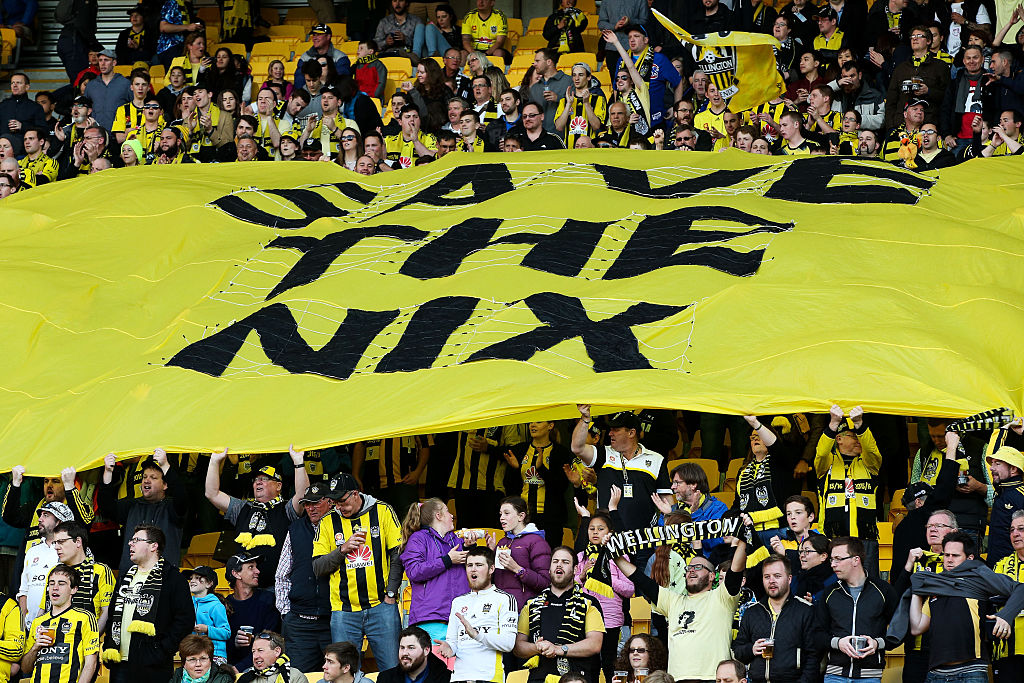
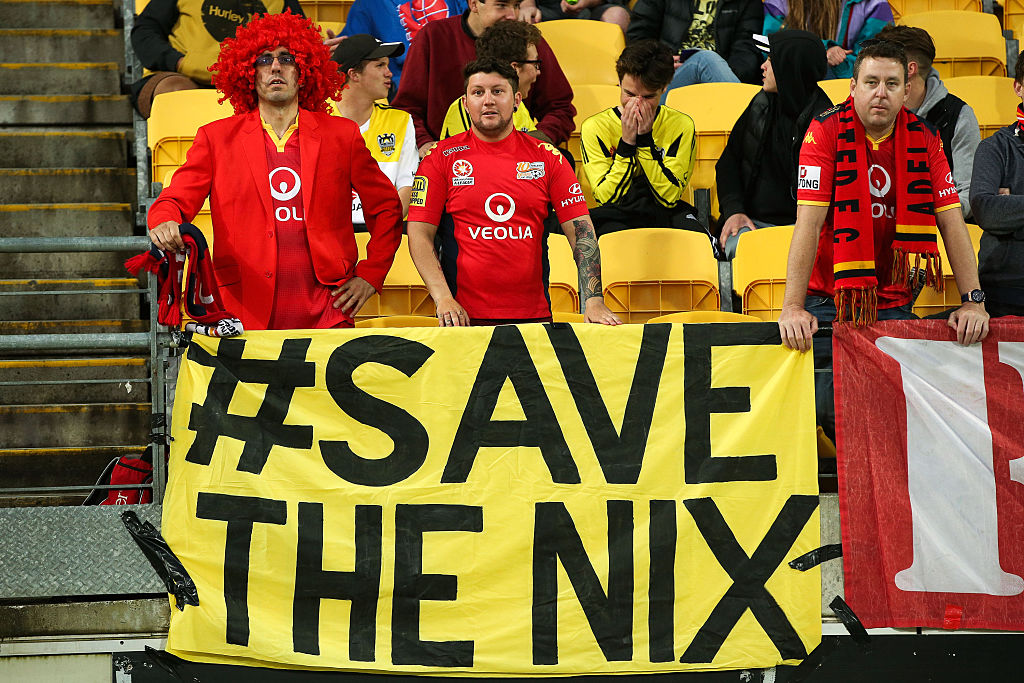
In 2015, it was Wellington’s fanbase and the support shown by the club’s A-Leagues rivals that rallied to keep them afloat.
In September of 2011, it was a group of local businessmen.
Ahead of the 2011-12 Isuzu UTE A-League campaign, debt-burdened Phoenix owner Terry Serepisos gave up control of the club, and in came a consortium led by brothers Lloyd and Rob Morrison to take the reins.
The ownership group, Welnix, is now in its 14th year of operation. But just months after the consortium’s takeover, Lloyd Morrison tragically passed away after a long leukemia battle.
“Lloyd Morrison was approached and pulled together a consortium to save the club, because he saw something worth saving for the city, and for the country,” Dome said.
“Lloyd got together a consortium which included his younger brother Rob, and then unfortunately Lloyd died of leukemia in the United States only six months after he’d managed to save the club. He only saw a handful of games.
“It wasn’t Rob who pulled this together, it was his brother, but Rob and his brother shared the idea that this was going to be important for the city.
“Rob, and a few of the key owners, have kept it together through some pretty tough times, and it’s been hugely successful.
STATE OF PLAY: All the details about the Semi-Final second legs with a Grand Final on the line
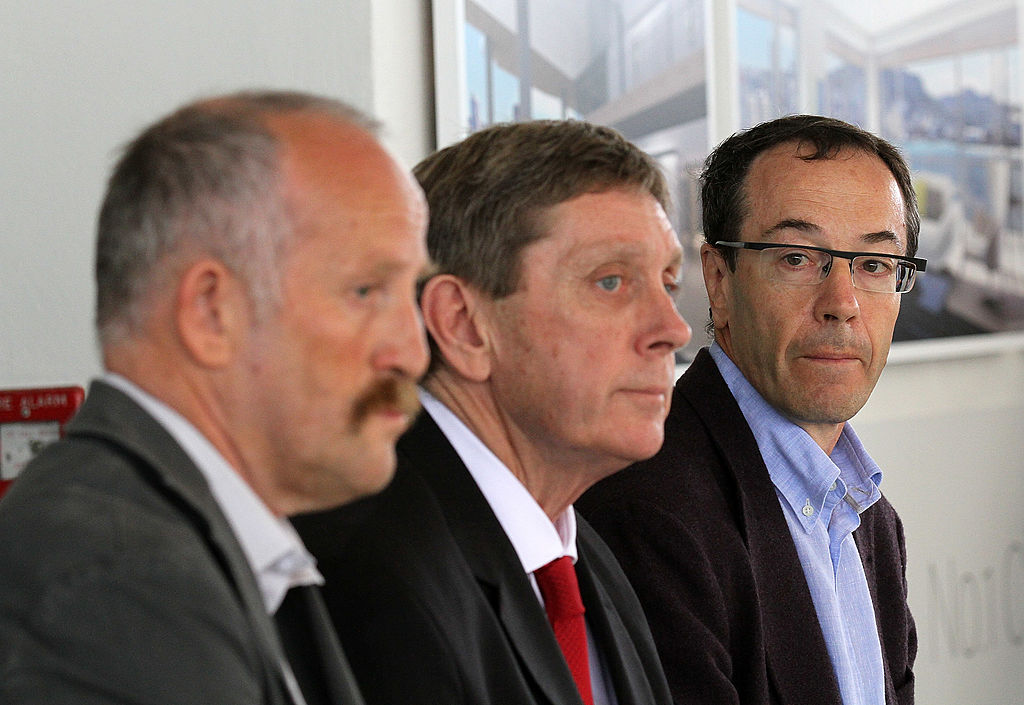
“The club is run by a lot of very good people who want to do the right thing because it’s the right thing, not because there’s anything in it. It’s well known that very few clubs make money, and it’s a financial burden, but they’re good people who want to do the right things for the right reasons.
“I think we’re very lucky that we’ve got not only owners who continue to have that vision, and are expanding that vision, but also have the financial wherewithal to push on through some pretty huge challenges thrown at the club over the years.”
SOLD OUT! APL confirms Isuzu UTE A-League Semi-Finals at capacity for blockbuster clashes
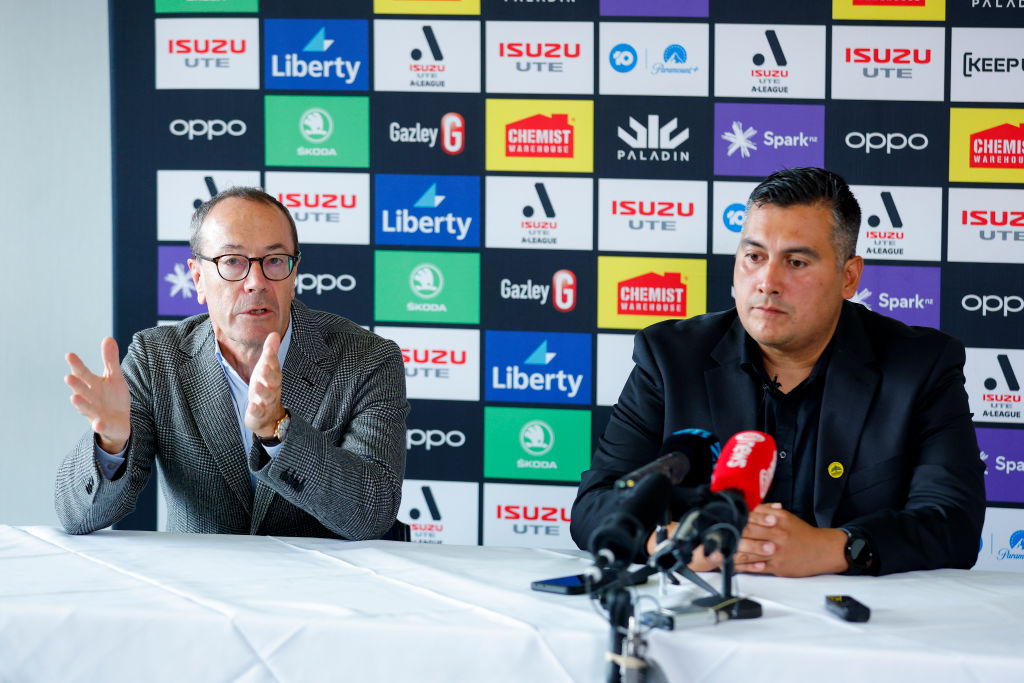
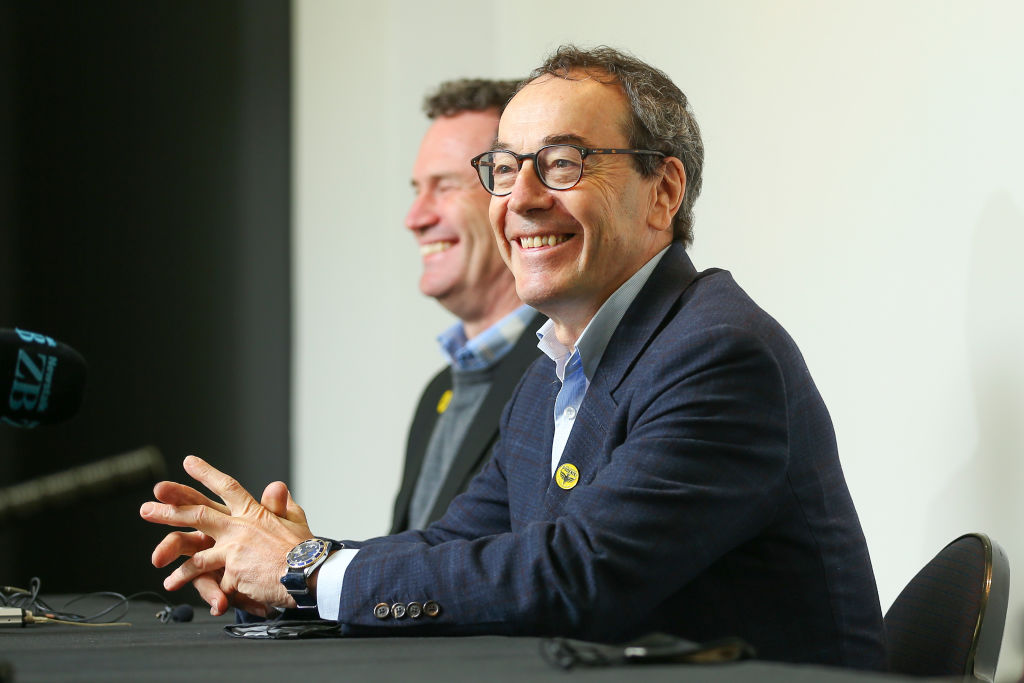
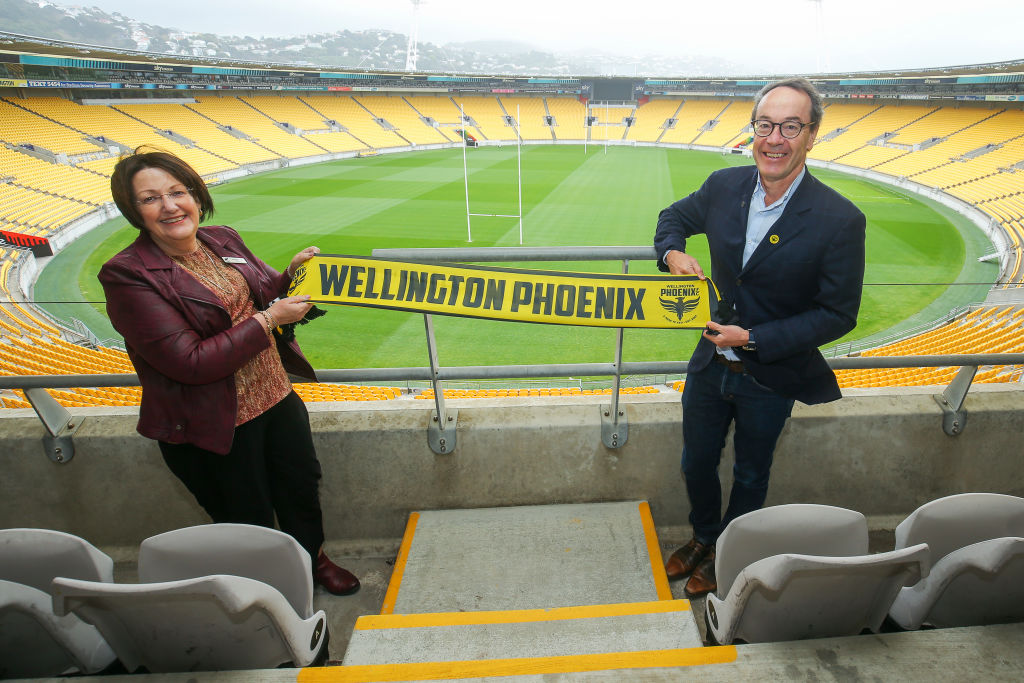
Through the club’s 17 years in the A-Leagues, no challenge has come close to the COVID-19 pandemic, and the nomadic years in which the players and staff were torn from their homes, setting up camp first in a New South Wales hub, and then in Wollongong.
“It was a game of survival,” Dome said. “A real-life version of Survivor. (In 2015) we had to outwit and outlast a lot of the opposition – and then have a global pandemic roll through where essentially the entire club was uprooted.
“Many players and staff were away from their families for six to seven months. We had staff members had players who moved their families to Wollongong to live there, and their kids went to school in Wollongong. It was the only way we could make it work. Immense sacrifices came through that.
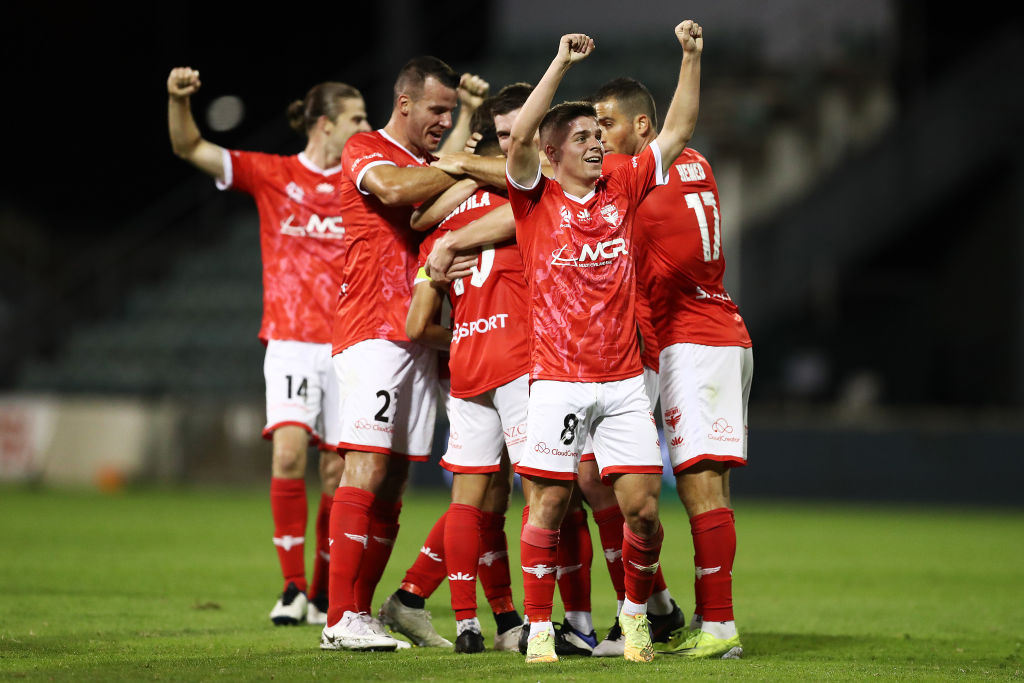
“I always had a lot of faith in the ownership group that they wouldn’t let it go… they funded it at that period the best that they could, and tried to keep on as many people as they could so we didn’t have that mass redundancy and then try and recruit.
“We were never at that stage where it was only down to one or two people. Through COVID everyone took massive pay cuts, because there was no revenue coming in. But we came out the other side, and managed to flourish.”
The 2011 ownership change, the 2015 “Save the Nix” campaign and the pandemic in 2020: Dome refers to these major events as the “sliding doors” moments in Phoenix history -with “a few minor ones along the way as well”.
But those three moments all relate to a key factor of Wellington’s current success: in the 2015 “Nix out” saga, the Welnix ownership group sought future security by investing in the club’s academy setup. And when the pandemic struck in 2020, the financial burden opened doors for the club’s academy products to break into the first team.
Add in the arrival of former head coach Ufuk Talay in 2019 and his assistant Giancarlo Italiano, who took over after Talay’s departure in 2023, and you can map out the club’s journey from the cusp of multiple collapses to the brink of a club-first Grand Final.
“(2015) was around about when we were starting on our journey investing in the academy at that time,” Dome said. “When someone gets around to writing the history of the club, it was certainly a pivotal time. Looking back on it now you think some seeds of what the club eventually built into started at that stage, it wasn’t necessarily because of the challenges in front of us, but you can say it was certainly one of those pivotal moments.
“Now you look at our current coaching structure, with Giancarlo now, he’s been with us for quite some time, he understands the club, he understands the culture.
“You listen to him talk, and apart from that slight Aussie accent he has, he’s as Kiwi as Kiwi. He’s as Wellington as they come.
“The way he talks about culture, about what it means to be a part of this club, how we’ve built ourselves around being inclusive and a family-oriented culture – that’s Wellington. He’s talking Wellington, he’s talking like he’s a Kiwi.”
“Certainly, (another) one of the factors is the high-performance centre in Trentham,” Dome continued, “and honestly, the other amazing one for me is the improvement of Alex Rufer. His performance (against Victory) was huge – but that’s not unusual, he’s been doing that all year. He has been leading from the front not only in his six role, but also as the captain on and off the field.
“The academy, the high-performance unit, the recruitment we’ve done on and off the field with Chiefy, his support staff and the players, and then you roll in Rufer on top of that, it’s a pretty solid jigsaw puzzle. You put those pieces together and you can see why the Phoenix have been doing well this year’.”
In carrying on the work begun by former head coach Talay, Italiano has leant heavily on academy talent to record the club’s best-ever points tally of 53, and the club’s highest-ever finish of second. His side have conceded just 26 goals, the least of any team in the league, and kept an equal-league high of 12 clean sheets.
On Saturday, they play Melbourne Victory in the second leg of a Semi-Final, perfectly poised after Sunday’s goalless draw at AAMI Park, for a spot in the club’s first-ever Grand Final.
Dome says Wellington’s fairytale 2023-24 campaign goes beyond silencing old doubters.
“For me it’s more about repaying the faith of the fans who stuck with us,” he said. “It’s very difficult for us to express our appreciation for them because very few clubs have had the challenges we’ve had. They’ve stuck with us.
“When people ask what are you most looking forward to about Saturday night, that’s what I’m saying. I know how much excitement is going to be in that stadium.
“There’ll be kids there who have maybe not been to a football match before, there’ll be adults there who have been to every single Phoenix match ever.
“It will be the breadth of that experience there, and I just know the atmosphere is going to be incredible. It will be a magnificent night for football in New Zealand, and a magnificent night for the A-League.”
He added: “This is the justification of all the hard work and vision, strategy, foresight and investment the owners have made. We came out the other end and we’ve built something that’s really special – which can’t be denied anymore.
“The hope is the fans enjoy that night for what it’s worth because it wasn’t easy to get there – and they don’t come around often. We’re not like Victory, we’re not like Sydney who have been there five times, six times. We haven’t played a Grand Final before.
“It’s because of the history of the club, where we’ve got to and the way we’ve done it this season, with the promotion of so many young players out of the academy, and the players they’ve become.”
SOLD OUT! APL confirms Isuzu UTE A-League Semi-Finals at capacity for blockbuster clashes
